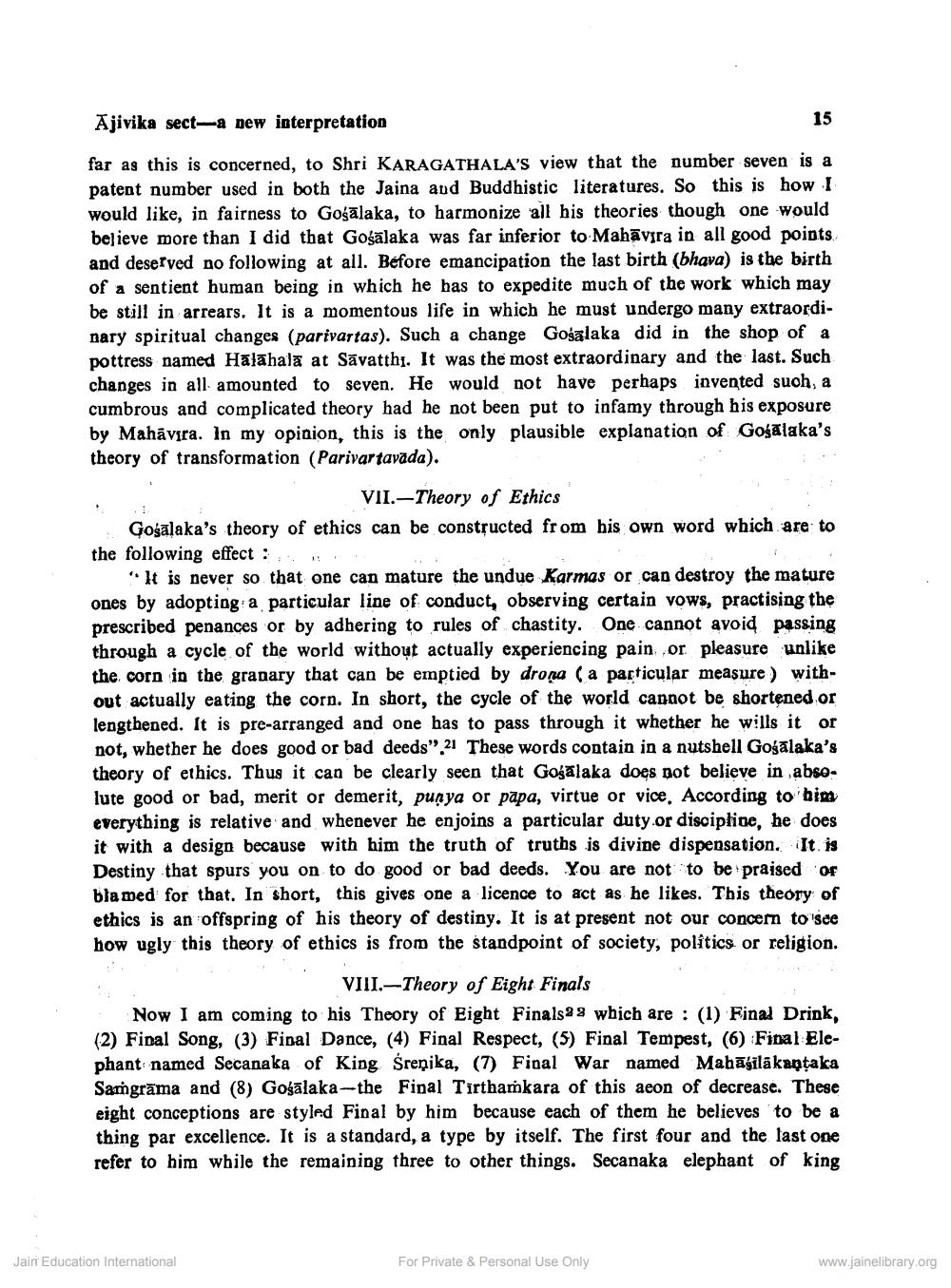________________
Ājivika sect-a new interpretation
15
far as this is concerned, to Shri KARAGATHALA'S view that the number seven is a patent number used in both the Jaina aud Buddhistic literatures. So this is how I would like, in fairness to Gośālaka, to harmonize all his theories though one would believe more than I did that Gogalaka was far inferior to Mahāvıra in all good points and deserved no following at all. Before emancipation the last birth (bhava) is the birth of a sentient human being in which he has to expedite much of the work which may be still in arrears. It is a momentous life in which he must undergo many extraordinary spiritual changes (parivartas). Such a change Gosalaka did in the shop of a pottress named Hālāhala at Săvatthi. It was the most extraordinary and the last. Such changes in all amounted to seven. He would not have perhaps invented such, a cumbrous and complicated theory had he not been put to infamy through his exposure by Mahāvira. In my opinion, this is the only plausible explanation of Gogalaka's theory of transformation (Parivar tavada).
VII.-Theory of Ethics Gośālaka's theory of ethics can be constructed from his own word which are to the following effect :
It is never so that one can mature the undue Karmas or can destroy the mature ones by adopting a particular line of conduct, observing certain vows, practising the prescribed penances or by adhering to rules of chastity. One cannot avoid passing through a cycle of the world without actually experiencing pain or pleasure unlike the corn in the granary that can be emptied by droņa (a particular measure ) without actually eating the corn. In short, the cycle of the world cannot be shortened or lengthened. It is pre-arranged and one has to pass through it whether he wills it or not, whether he does good or bad deeds”.21 These words contain in a nutshell Gośālaka's theory of ethics. Thus it can be clearly seen that Gogalaka does not believe in abselute good or bad, merit or demerit, punya or papa, virtue or vice. According to bim everything is relative and whenever he enjoins a particular duty.or discipline, he does it with a design because with him the truth of truths is divine dispensation. It is Destiny that spurs you on to do good or bad deeds. You are not to be praised of blamed for that. In short, this gives one a licence to act as he likes. This theory of ethics is an offspring of his theory of destiny. It is at present not our concern to see how ugly this theory of ethics is from the standpoint of society, politics or religion.
VIII.-Theory of Eight Finals Now I am coming to his Theory of Eight Finals which are : (1) Final Drink, (2) Final Song, (3) Final Dance, (4) Final Respect, (5) Final Tempest, (6) Final Elephant named Secanaka of King Śreņika, (7) Final War named Mahāgilāka taka Sangrāma and (8) Gośālaka-the Final Tirthamkara of this aeon of decrease. These eight conceptions are styled Final by him because each of them he believes to be a thing par excellence. It is a standard, a type by itself. The first four and the last one refer to him while the remaining three to other things. Secanaka elephant of king
Jain Education International
For Private & Personal Use Only
www.jainelibrary.org




